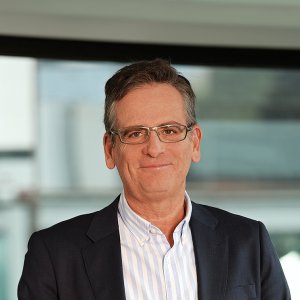
How Can the Industry Establish Relationships with Communities?
Costly blockades that halt mining activities can cost companies millions of dollars a day and tend to be rooted in a lack of satisfaction and dialogue between the surrounding communities and the mining industry. Companies eagerly seek new ways to communicate with social spheres to avoid the costly blockades and negative media coverage. Some opt for international certifications while others incorporate sustainable habits to reduce their environmental and social impact. Mexico Mining Review asked industry leaders about the main obstacles to creating a healthy relationship with these communities and what best practices they use.
Robert Archer
In 2016, we were given an award in recognition of our sustainability programs from CEMEFI, which marks the sixth consecutive year we have received this honor. At Guanajuato, the mine is in the middle of the city so we really have to work very closely with the local communities. The most important aspect a company must consider when working in close proximity to a city is ensuring it is a good corporate citizen. This includes the way it treats employees, respect for the environment and integration with the community. At the San Ignacio mine right outside the city, the communities are more rural and some do not even have access to drinking water. We are working with them to provide access to these facilities and we are implementing education programs based on recycling, hygiene and other relevant topics.

Fred Stanford
In truth, we have excellent relations with local communities, but unfortunately it only takes 10 people to execute a blockade that can be very damaging to the operation. Given that we are new to the area, understanding what we do is vital so we arrange a bus to pick up community members and take them through the plant every Thursday, which has been a tremendously popular initiative. We also support local fishermen by providing equipment and stocking facilities. It is important to maintain a constant presence and dialogue so that we are no longer viewed as an outsider, but rather as an important contributor to regional development.

Manolo Espinoza
ArcelorMittal Mexico is a Socially Responsible Company. Besides being the main generator of employment in Michoacan, we are also committed to transforming the industry and building a better future for the generations to come. We are aware of the impacts of our interventions in the region and measure the effectiveness of our strategies according to the level of transformation achieved in the communities where we operate, and the shared value that they generate.
We believe that establishing early and close relationships with communities is fundamental to our business, with the aim of jointly addressing and managing the negative impacts that may arise in the field, both for our mining and our steel production operations.

Darren Pylot
Our company’s Environment, Health, Safety and Sustainability (EHSS) policy is our commitment to sustainable performance. It is the basis for our decisions related to environmental, health and safety and social performance. We use the Mining Association of Canada’s Towards Sustainable Mining protocols for tailings management, energy management, health and safety, and stakeholder engagement as best practice in these areas. The Cozamin mine has been recognized by several organizations for our commitment to sustainable performance, including the distinctive ESR Socially Responsible Company (Mexican Centre for Philanthropy - CEMEFI), Clean Industry Certification (PROFEPA) and the Family-Responsible Company Accolade (Ministry of Labour and Social Welfare). In 2015, the mine was ranked number 16 in the top 100 Great Places to Work in Mexico for companies of 500–5,000 employees.

Alain Charest
Exploration or mining companies need to use their own people, as senior as possible, to establish from the very beginning the relationships with the mineral project’s surrounding communities. Companies often use foreign or independent consultants to do this social work, but it never beats using the company’s own people. Upon starting an exploration project, it is important to get to know the local folks, to listen to them and to start earning their trust. In general, locals truly respect that and it builds a solid trust base to build upon when a major mining operation is planned for the future. In my opinion, problems with the ejidos only become an issue out of negligence.

Renato Urresta
Responsible mining operations comprise transparent and participatory measures. International development organizations such as the World Bank and the International Finance Corporation provide funds for projects. A company, in order to gain access to finance, has to comply with standards that have been developed particularly to protect the environment and the communities, and to protect overall investment. We collaborate with our clients to develop projects under these standards so they successfully comply with audits. We also work with financial institutions to audit projects to make sure they are complying with the requirements. Many private financial institutions have become more demanding when it comes to project development and corporate responsibility as a way to protect their capital. Banks often include social aspects in their applications.

Brenda Rogel
The largest obstacle in environmental and social compliance is the community consultation process as it requires a complex understanding of cultural norms. For the oil and gas industry, the National Human Rights Commission released recommendations for environmental compliance in August 2016 that now include community consultations and are based on international norms. However, these same specifications were not established for other industries, so many mining companies struggle with the lack of a clearly established regulations in terms of community consultation. Operators can incorporate more preventive and proactive approaches by identifying, within economically viable projects, a map of advantages, areas of opportunities and allies. Taking the time to develop a strategy often helps align the objectives of a project with the needs of surrounding communities and ensures success.
















